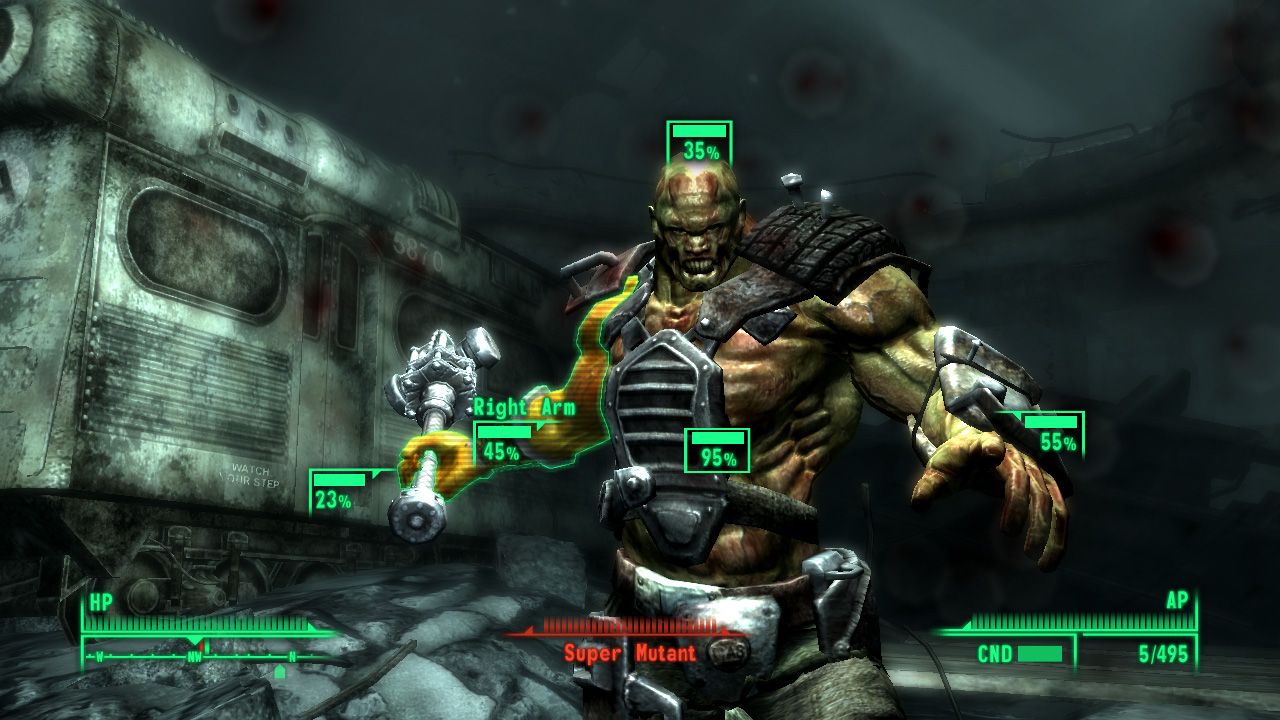Role-playing games, or RPGs, are a common video game genre that’s actually difficult to define clearly. There are many types of RPGs, including sub-genres, and some games use RPG elements without being RPGs themselves.
Let’s take a look at the RPG genre to better understand it. We’ll examine the history of the genre, lay the framework for what an RPG is, and explore some different types.
The Origins of Role-Playing Games
We can trace role-playing video games back to their offline tabletop origins. Dungeons & Dragons, initially published in 1974, was the first mainstream success in this area and brought RPGs to the masses, so it serves as a great example.
In games like Dungeons & Dragons, players create their own character that has various stats. These stats, such as strength and intelligence, determine their skills in various areas. Led by a Dungeon Master, who controls the flow of the game and the story, players go on an adventure.
The unique build of each character affects how they deal with challenges in the campaign, such as being attacked by monsters or needing to pick locks. As players progress through the game, they earn experience points, allowing them to level up and increase their abilities, perhaps learning new skills in the process.
As video games grew in popularity on both personal computers and home consoles, electronic RPGs that used many of the same rules became more common. Of course, instead of calculating stats by rolling dice and having a Dungeon Master to advance the story, video games have the advantage of letting the programming handle all of this.
What Defines an RPG?
Now that we know where RPGs started, how do you actually define a role-playing game? There are a few key points a game should fulfill to be considered an RPG:
- There must be some kind of character development where your character gets intrinsically stronger as you play. This often means you increase your health, experience points, stat attributes, or similar.
- Your combat experience must be affected, at least in part, by your character’s attributes. This might mean that the damage you do is influenced by your player’s strength or agility, for example. Combat effects from items, or the player mastering inputs, doesn’t count.
- Your character should have a flexible inventory, consisting of a variety of weapons, armor, spells, healing items, and other tools to use as you see fit. Items you have to use for puzzles don’t count for this.
While some RPGs have additional elements, any game that doesn’t include all three of these points isn’t a proper RPG. To put this into practice, let’s take a look at two examples of games and classify whether they are or are not RPGs, based on the above.
Fallout 3
In Fallout 3, you explore a nuclear wasteland after surviving the fallout in an underground vault. At the beginning of the game, you put skill points into various stats for your character. As you complete quests and earn EXP, you get more skill points to allot as you level up. This fulfills the first criteria.
While Fallout 3 is playable in both first-person and third-person, your player stats affect combat in several ways. For example, your strength stat and the melee weapons skill affect how much damage you deal with weapons like swords. This fulfills the second item above, as your combat performance relies on stats, not just your decisions and physical performance.
Finally, Fallout 3 has a variety of weapon types, healing items, armor, and other items that you can use. These are open to the player to choose and most aren’t required for anything specific, so #3 is fulfilled.
Thus, Fallout 3 is an RPG.
The Legend of Zelda: Ocarina of Time
Many people classify the Zelda games as RPGs, but comparing the series to the above criteria, we can see why this isn’t the case.
In Ocarina of Time, Link can gain additional hearts as you complete dungeons, but it’s not intrinsic progression. Link has no stats or a player level that increases from defeating enemies or completing quests, so point #1 isn’t fulfilled.
For the second point, while you can earn a better sword through a certain quest, combat in Zelda relies solely on your actions. The game doesn’t have any specific stats or attributes you can view or tweak, so point #2 isn’t part of Zelda either.
Finally, Ocarina of Time has a variety of items, but almost all of them are required to progress through the game and solve puzzles. There isn’t a variety of weapons to pick from like in Fallout, so point #3 doesn’t fit for Zelda.
Clearly, Ocarina of Time is not an RPG. Most Zelda games are actually action-adventure titles because they combine the puzzle-solving and story of adventure games with the combat and movement of action games.
Western RPGs vs. Japanese RPGs
Early RPGs for computers, such as The Bard’s Tale, differed from RPGs that arrived on consoles, like Dragon Quest. Over time, instead of referring to RPGs by the platform that they were on, people started referring to the games as “Western RPGs” and “Japanese RPGs” (JRPGs) instead.
This is an important distinction, so let’s take a closer look at these.
Western RPGs
Western RPGs, called such because they’re typically developed by teams in the Americas or Europe, are typically more open-ended. Most of the time, they give you the choice of how to approach quests and the order you tackle them.
They often allow you to create your own character at the start of the game, who is a “blank slate” that you influence. Western RPGs may also include lots of dialog options that allow you to influence the story events, even letting you choose moral or immoral actions.
Additionally, Western RPGs differ in tone from their Japanese counterparts in that they’re often more serious and star older characters. Typically, their combat takes place in real-time on the same screen as the rest of gameplay.

Examples of major Western RPGs include the Mass Effect series, Skyrim, and The Witcher 3.
Japanese RPGs
Japanese RPGs differ from their Western counterparts in a few key ways. Usually, JRPGs feature a more charismatic protagonist that you can’t customize much, if at all. The pacing is also much more streamlined: instead of an open world where you can tackle quests as you see fit, Japanese RPGs are often linear.
Their battle systems differ greatly, too. Most Japanese RPGs include turn-based combat, where you select commands from a menu instead of battling in real-time. A lot of JRPGs, especially older ones, include random battle encounters on a separate screen instead of showing enemies in the field.

The characters in JRPGs are typically younger, and you may have an entire party of characters that travel with you (instead of being alone, which is common in Western RPGs).
Some popular Japanese RPGs include the Final Fantasy series, the Persona series, and Chrono Trigger.
Sub-Genres of RPGs
Now you know how to define an RPG and distinguish between the two major types. But this isn’t where the genre’s confusion ends: there are also sub-genres under RPGs. We’re referred to some of these in passing already, but let’s quickly take a look at some examples so you’re aware of them.
Action RPGs are role-playing games with a heavy emphasis on combat. These include games like Skyrim, as your real-time actions during combat play a big part in whether you’re successful.
Role-playing shooters are shooter games with RPG elements. Borderlands, for example, has you put points in various stats as you level up.
MMORPGs, or massively multiplayer online role-playing games, are RPGs where you play online with other characters, such as World of Warcraft. These games continue to run even while you’re not playing, unlike single-player titles.
Tactical RPGs take the story and stat elements of RPGs and combine them elements of turn-based or real-time strategy games. These include series like Disgaea and Fire Emblem.
There are other blurred genres, but these are some of the most popular.
Enjoy Role-Playing Games Today
RPGs are a broad genre, thanks to their long history and mixing with other game types. Lots of games contain some RPG elements, but proper RPGs are easy to identify once you know what to look for. They’re a great game type if you enjoy getting into a character and stat-based gameplay that doesn’t rely on your physical skill as much.
There are lots of other video game genres you might not know about, so why not look into some of them next?
Image Credit: paulzhuk/Shutterstock



